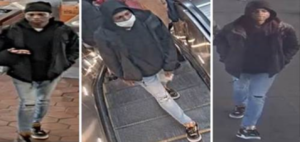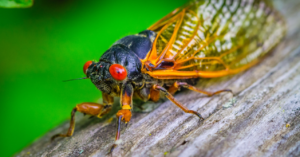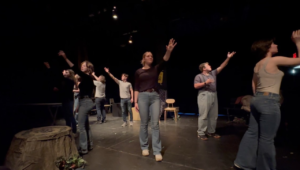How Catholic University is Fighting the Pandemic
By Theresa Whitfield
Widespread efforts to provide relief for the unprecedented pandemic the world is facing are increasingly rising across communities, some in the most unexpected ways and places. Contributions are being made on levels large and small. The Catholic University community is no exception, with entire schools, professors, and even students doing what they can to help.
The university has contributed by donating personal protective equipment (PPE). Catholic U professors have directed their research and skill sets towards developing vaccines, designing PPE to combat medical supply shortages, and making facemasks. Groups of students have contributed by sewing masks, and others have created a coffee campaign, where they Venmo CUA alumni in the medical field the price of a coffee.
The Conway School of Nursing has donated 20 boxes of sterile surgical gloves, 61 boxes of non sterile surgical gloves, 13 containers of disinfecting wipes, and 8 packages of isolation exam gowns. Clinical coordinator David Want delivered these supplies to Holy Cross Hospital in Silver Spring, MD.
The supplies were taken from the school’s nursing skills laboratory. Dean Patricia McMullen pointed out in a university communications article that “students are studying virtually, [so] they will not be using these materials and we are, instead, working to ensure our colleagues in practice have much-needed equipment.”
Also joining the fight is biology professor and director of the university’s Center for Advanced Training in Cell and Molecular Biology Venigalla Rao. In the lab, Rao directs his research towards “solving basic problems in virology and vaccinology.” He, in conjunction with experts across fields including genetics, biochemistry, immunology, and virology, researches the microbe bacteriophage T4 and how it can be used to develop vaccines for “anthrax, plagues, and dual-anthrax plagues.”
During the initial escalation of COVID-19, it became clear to Rao that his lab needed to redirect their efforts towards finding a vaccine for what would soon become a global pandemic.
“Right now, we are researching the possibility of using T4 as a platform to deliver vaccine candidates that protect against SARS-CoV-2 infection, the virus that causes COVID-19,” Rao said to the American Society for Microbiology. “We hope to generate useful vaccine candidates in the near future to address this very serious coronavirus crisis.”
Beginning in March, the university has offered his patented research royalty free to any researcher developing a vaccine.
Working with family members and friends on a solution to the shortage of medical supplies is biomedical engineering professor Binh Tran. Tran’s goal was to find new, cost effective ways of producing filters without having to sustain the costs to get entirely new masks. Building off of Stanford bioengineering professor Manu Prakash’s idea, he has designed a “retrofitted snorkel mask,” as described in an article in the university website, using a 3-D printer. By using a snorkel mask, he has successfully figured a way to use replaceable filters that will be able to be changed as easily as “changing a band-aid.”
“This is what engineers do, especially biomedical engineers,” Tran said in a university communications article. “We’re not nurses on the front lines, but we are trying to solve human problems.”
Beyond the fields of science and technology, Costume Shop Manager for the Rome School of Music, Drama, and Art Julie Cray Leong has used her talents to sew covers for N95 masks. She posted an instructional video, encouraging students to widen their skill sets by learning to sew.
Students have also tried their hands at sewing masks. Sophomore nursing major Brooke Lackey came up with the idea after seeing news about the shortage of PPE in hospitals. She reached out to fellow nursing majors and was able to get a handful of her friends to join her project. In total, the girls have made over 60 masks.
“It’s really nice to be able to help out, even in a small way,” Lackey said. “I’m not a super skilled sewer, but I am happy to be able to be able to apply the skills I have to help.”
Others have come up with creative ways of helping health care workers without having to even move off the couch. Students contribute to a coffee campaign by sending CUA alumni working in the medical field money over Venmo to buy a coffee.
Class of 2019 Nursing alumna Kate Foster was on the night shift when she first saw that she had received a payment through Venmo.
“I couldn’t believe the CUA community still could make me feel that happy after graduating!” Foster said. “I received money from too many kind people, and I’ll have to treat them back once this is all over.” Foster received cups of coffee from current students and alumnae Kathleen Malcotti, Becca Rizkalla, Catherine Olohan, Caroline Ciocco, Isabella Gholl, Mary Grace Zwilling, Anne St. Amant, and Madi Bell.
From the top down, Catholic University’s commitment to serving others has always been clear. It is a community that is unceasing in its desire to serve and boundless in its ingenuity in doing so.





